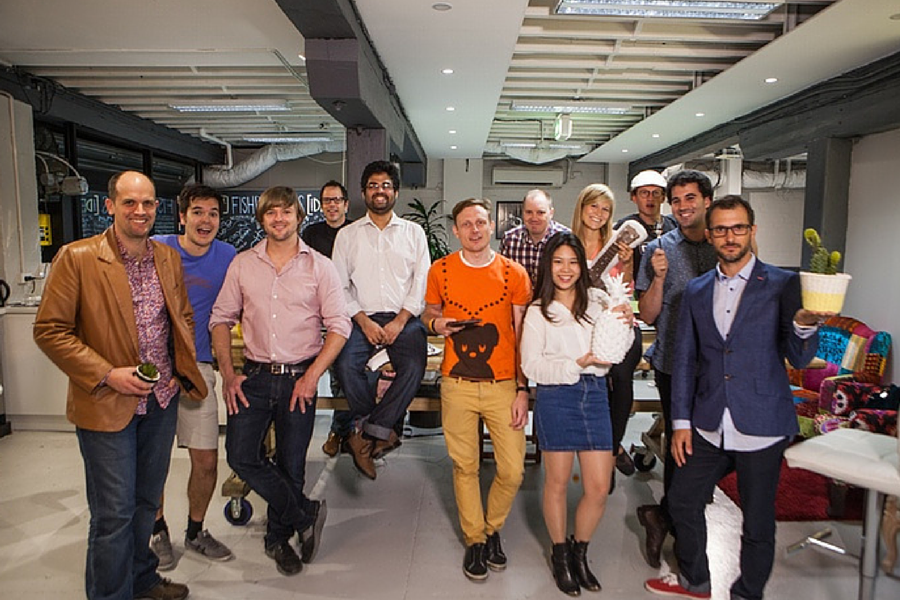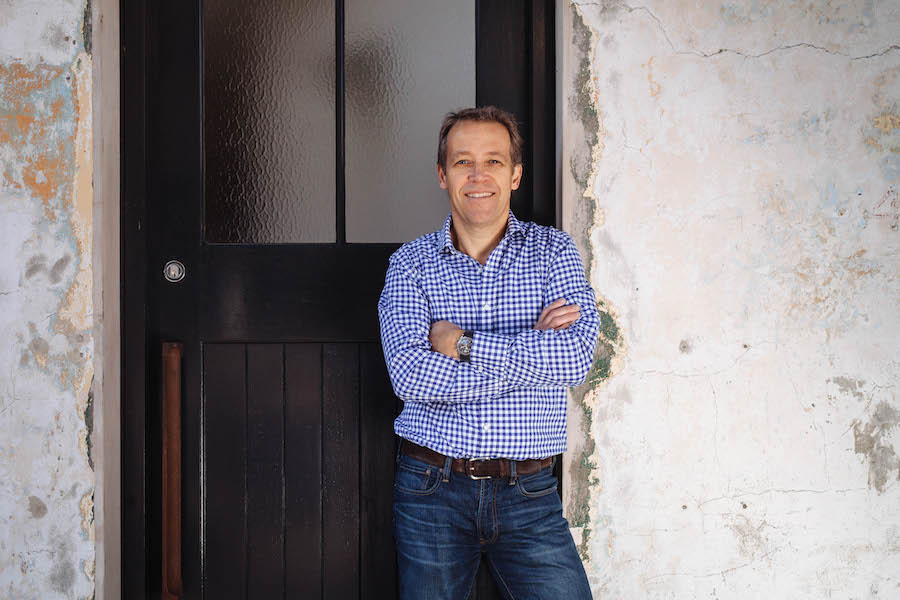![you-cant-sit-with-us]()
I recently came across an interesting thread on the public Facebook group
Sydney Startups. The group, which has over 2,600 members and is run by local entrepreneur and Ruby on Rails developer James Martin, was set up for the local community to share resources and information as well as generate discussion about the tech startup sector. Flogging your own product or service in a belligerent manner is something that has always been well policed by the group admin - it's frankly not welcome.
The thread from Friday I am referring to was initiated by business coach Laura Francis who was selling a program targeted at female entrepreneurs. While I have had interactions with Laura online and appeared as a guest on her podcast earlier this year, I am unfamiliar with her content, coaching style and business model. I am therefore unable to comment on whether or not what Francis was selling would be beneficial to female founders of startups. However I am familiar with Francis' online lead generation style on social media; she uses provocation as a tool to polarise and attract a niche audience. That is what she did in the post which started out with the line "Hey Business Lady! You say you want it all but you’re a PUSSY! You went into business thinking you know it all…. But, guess what – YOU DON’T!" - to be fair, when you
read the entire post and properly analyse the content, it has been deliberately structured to attract a very specific type of person and repel the rest - that's the point of polarisation.
Unfortunately, what Francis received from the post was 'feedback' from many startup founders who basically said 'you are not welcome here' and was eventually blocked by the group admin for trolling. To be blunt, a sales pitch made within a group that has been specifically set up for information sharing and discussion should be policed and group members should be vocal to others about contributing in the right way. However, what stood out about this particular thread was not the fact that etiquette was not adhered to, it was that members were more furious about the language used in the post, and that Francis was a business coach posting in a startup focused group.
I have seen this kind of reaction before in the Sydney Startups group when it comes to Multi-Level Marketers (MLMs) and Coaches; it appears that startup founders don't like them and don't want them pretending that they are part of our ecosystem.
Coaches and MLMs are not startups?
Both coaching and MLM based businesses are legitimate industries worth billions and are responsible for employing tens of thousands of people world wide. MLM, in particular, has been around since the 1920s and can be traced back to organisations like the California Perfume Company, which we now know as Avon. Yet there is a widely held view within the startup ecosystem (globally) that these types of companies are not startups and that people working within these companies to sell products are not founders.
The simple way to determine this is by looking at the characteristics of a startup and seeing whether coaching and MLM fit the picture. In his essay
Startup = Growth, Y Combinator cofounder Paul Graham defines a startup as a company that is designed to grow really fast. He also makes a point in the essay to highlight that in order to achieve rapid growth you need to create something that you can sell to a big market.
To grow rapidly, you need to make something you can sell to a big market. That's the difference between Google and a barbershop. A barbershop doesn't scale.
For a company to grow really big, it must (a) make something lots of people want, and (b) reach and serve all those people. Barbershops are doing fine in the (a) department. Almost everyone needs their hair cut. The problem for a barbershop, as for any retail establishment, is (b). A barbershop serves customers in person, and few will travel far for a haircut. And even if they did the barbershop couldn't accommodate them.
Writing software is a great way to solve (b), but you can still end up constrained in (a). If you write software to teach Tibetan to Hungarian speakers, you'll be able to reach most of the people who want it, but there won't be many of them. If you make software to teach English to Chinese speakers, however, you're in startup territory.
Most businesses are tightly constrained in (a) or (b). The distinctive feature of successful startups is that they're not.
If we use this as a guide, it can be concluded that coaches are not startups, though a coaching platform that has been designed to reach a massive market could be. MLM based companies are startups as they are designed to grow quickly and service a mass audience. However, the network of 'founders' within these organisations would not be considered startups, they are technically just part of the sales and marketing strategy.
Investors love startups in the MLM industry
According to recent data from AngelList, there are 34,000 individual investors and venture capital firms that have actively invested in or are looking to invest in the MLM space. Some of those people include UBER founder Travis Kalanick and Eventbrite cofounder, Kevin Hartz.
In April last year, entertainment and rewards focused MLM startup
Viggle closed a USD$35 million round of capital, and hair extension MLM startup
VIXXENN which is experiencing rapid growth at the moment attracted seed funding from firms like Brooklyn Bridge Capital and Corigin Ventures. The reason why investment in an MLM startup is so attractive is because 90% of the revenue made within a MLM environment goes directly to the company headquarters, thereby making MLM owners and investors very rich people.
People like Donald Trump, Warren Buffet and Robert Kiyosaki are on record stating that it is a great industry (as an owner) to make money in. It just happens to be that the primary way they make that money is by selling the dream of owning of your own business by choosing which hours you work, and having access to unlimited marketing and technical infrastructure that will allow you to achieve your "dream lifestyle".
Often, people join an MLM because they're passionate users of a product, which not only leads to advocacy, but also to the actual selling of the same dream sold to them.
It is a growth strategy often seen as a turn-off by startup founders, mainly because they feel that the title of being a "founder" is something that, at least in some capacity, needs to be earned, and MLMs don't quite sync with that philosophy.
A love-hate relationship with coaching
Contrary to what the opening example in this article suggests, startups do actually engage with business coaches and mentors. Where technology startups founders differ to small business owners and other company owners, is that they prefer to seek these people out for themselves.
Like MLM, the Coaching Industry is one of the fastest growing in the world, however unlike MLM there are no dominant players in the space. (There is
ActionCoach which is the largest business coaching company in the world, but ActionCoach itself is actually an MLM). The industry is growing annually at a rate of 7.8% according to IBIS World, and in the US alone the sector is worth $1 billion to the economy.
So while coaching may be a great industry to make money in and be entrepreneurial, those in the space technically would not be considered startups. Therein lies the distaste, and why startup founders are so quick to jump on unsolicited pitches and shut them down. Is it nice to do that? Probably not, but most training in the life and business coaching industry is geared around helping a particular type of client; and fast-growth, highly scalable tech companies are most definitely not part of the curriculum.
You can't sit with us
The debate about who is able to participate within the startup ecosystem is not too dissimilar to the
small business vs. startups policy discussions that we have written about on Startup Daily. In fact, I am going to argue that defining what is a startup and highlighting what type of products and services truly support startups (i.e. looking at who does and does not actually belong in the ecosystem) is just as critical to policy formation for the space as defining the difference between what a startup and small business is.
A startup ecosystem progresses based on its general culture and resources. Startup ecosystems help transform a nation's economy and create jobs of the future. In order to do that successfully, participants within the space need to be collectively working towards that goal. Individuals and organisations that do not align with that goal should not be participants within the ecosystem. The trouble with coaching and MLM is that, at its core, they both promote financial selfishness above national economic growth.
That is not to say that: (a) there is anything wrong with wanting to make as much money as you can and live the life that you want; or (b) that startup founders are not financially selfish. The point being made is that in order to be part of the ecosystem, you need to be contributing to the community in a meaningful way. The vast majority of coaches out there don't understand the space properly because they confuse the term 'startup' with 'starting a business'; and MLMs are too focused on growing their own ecosystem to increase personal commissions to consider the bigger picture of what startups are trying to achieve.
Although proactive exclusion from the startup ecosystem is not what I am suggesting, I do think that it is worthwhile for the community to assess who actively makes a meaningful contribution and who doesn't. There are far too many individuals and organisations out there speaking on behalf of the startup ecosystem that are in fact, not startups or supporters of startups, and that is a problem, as it sends mixed messages to the government and causes the launch of messy government policy.





















